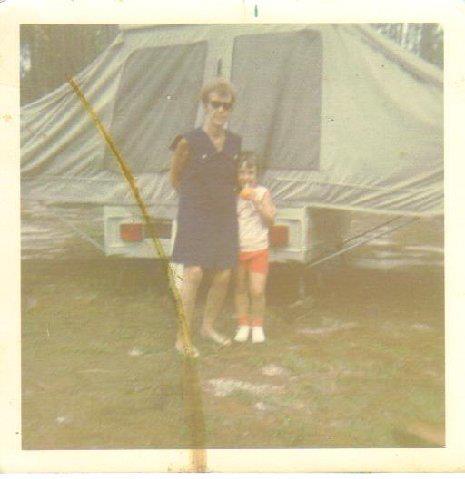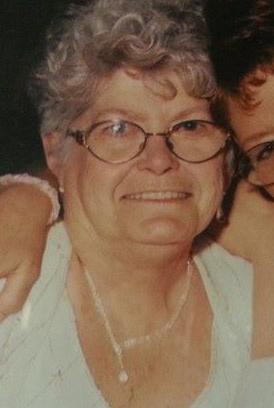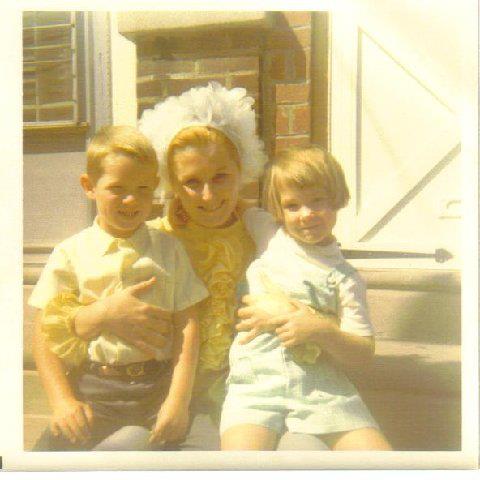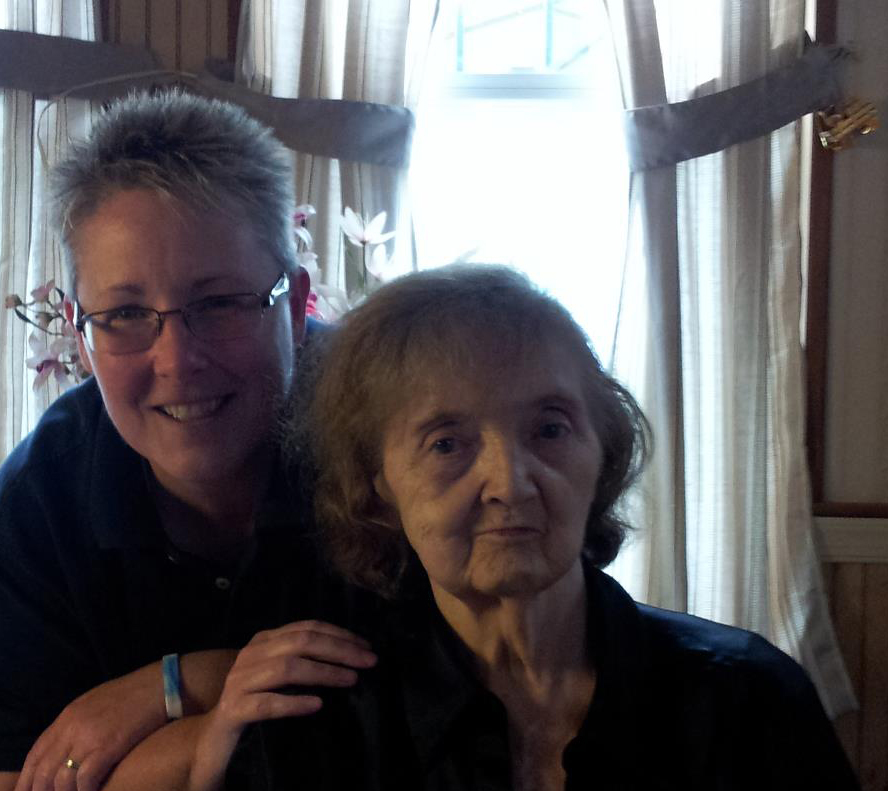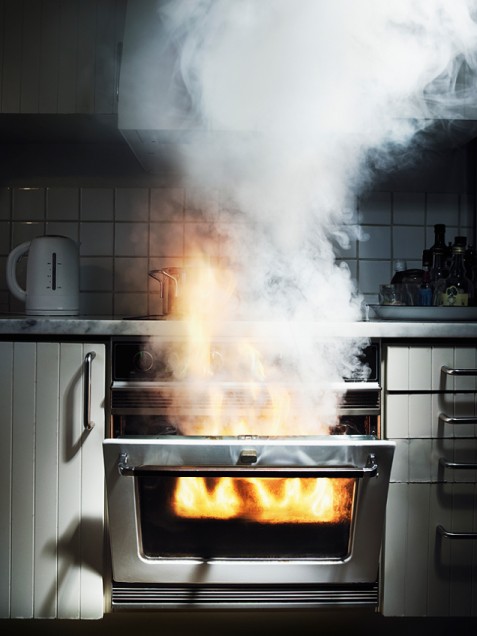A yahrzeit candle burns in the kitchen and throughout the day, I’ve pondered the intimacy of sharing the experience of someone’s death. Intimacy seems an odd word and yet nothing more suitable comes to mind. This sharing shapes me. It might shape any of us, I think…the piercing loss that dulls over time to add layers to who we are as people, to become, hopefully, a reason to be grateful.
I had a brother once. For that, I am grateful. He took me fishing when I was a kid and he taught me how to bait hooks and tie leaders. For that, I am grateful. He told me one day that my parents would be very proud of me and that they would have loved me, no matter the whole gay thing. For that, I am grateful. At the end of his life, he asked me to be part of making the decision to bring him to peace, one of the most difficult and the most beautiful things I’ve ever done. For that, I am grateful.
An excerpt from Urban Tidepool
March, 2002
I talked to Chick Monday afternoon of Easter week, right before I left my office for a meeting. We’d spoken more by phone in the last nine months, with him waiting on the transplant unit at Temple University Hospital for a new heart, than we had probably spoken my entire life. If I still lived on the east coast, it would have been so much easier to spend time with him. The year after our brother Michael died, I had accepted an executive director position in a small agency working with gay youth in the Midwest. I was half a day away and left with phone calls and occasional emails as our primary means of communication.
“They’re still trying to figure out what this infection in my lung is,” he said.
“So what are they doing?” I asked, piling the forms I needed for the upcoming meeting on top of my day planner.
“They’re worried about doing a biopsy. With the one lung, that’s always a big risk. All the blood work is showing that it’s something but they don’t know what.”
He and my sister-in law,Jedda, had fought hard for this transplant option. Since he had lost his other lung, he was considered very high risk for the transplant. Other transplant programs had turned him down. Temple had been his last chance. He was so sick now, he had moved onto the “heart floor” because their home was far enough away that if anything happened with his heart, he would not survive the trip to the hospital. After Michael’s death, he had been repeatedly hospitalized and we had had some close calls, but they’d always managed to stabilize him and send him home again. The message, prior to coming to Temple, seemed to be that they were sending him home to wait it out and be kept comfortable but the message at Temple was that there was still hope of living for years post-surgery.
We had spent many evenings during this nine month stretch planning the fishing trip we would take when his surgery was complete. He wanted to charter a boat off the Carolina coast and I wanted to land something as big as myself that took all day to get inside the boat. He had explained the whole process to me: how many weeks he’d remain inpatient after the new heart was put in, how many weeks after being released from the hospital he had to remain within a certain geographic area to the hospital in case his body rejected the heart and he had to be med-evac’ed back, how long before he’d be cleared to go out on a fishing charter. I hoped that within six months to a year, he’d be cleared. The only wildcard was when he’d have the new heart put in. We were nine months into a wait that averaged three hundred sixty four days. The most fun part was teasing him about how those poor doctors were ever going to find a way to transplant something into him that he’d never had in the first place.
“I’ll find out more from the cardiologist tomorrow.”
I checked my time. I needed to leave for my meeting. “I’m going to Syracuse tomorrow for a few days. I’ll call you tomorrow night when I get in to see what you found out.”
“Sounds good. Drive safe.”
“Yeah, I will. Love you.”
“Love you, too, babe.”
*****
I slept in a little the next morning and got started on my drive later than I really wanted. Zach occupied the back seat, asleep with his big head on his giant golden paws for most of the twelve hour trip. We were approaching the second anniversary of losing Beeb, whom I’d had for fifteen years. Zach was still beside himself without her and he went everywhere with me. It was after ten when I arrived in the Syracuse area. It was too late to call Chick. The man needed his beauty sleep. I unloaded my car into the guest bedroom at my friends’ house and Zach and I went to bed.
The following morning, I called Chick’s hospital room for my update. My nephew “Ours” answered.
“You need to come now,” he said, his speech pressured.
I was suddenly wide awake. “What happened?”
“He crashed Monday night. They don’t know what’s wrong. They induced a coma and they’ve got him on a ventilator. It’s bad. If you’re coming, come now,” he repeated.
It was always bad. Last year, he’d had a reaction to one of his medications and had hiccups for nine days. If his blood thinner medication was the slightest bit out of whack, he got a nose bleed just sitting up in bed. He’d had two strokes since Michael died; we worried about every headache. Nothing was simple and it seemed some days that every function of his body was controlled by the medical field.
I was nodding against the phone as if Ours would be able to feel it and know I was agreeing. “Yes, I’ll come. I’ll be there this afternoon.”
When I hung up, the friends whose home I was visiting were both standing there, waiting expectantly. “I have to go. It’s bad and if I’m going, I have to go now.”
We’d done this before. This was the third time in the last two years that I’d gotten the “if you’re coming, come now” call. Each time, I dropped what I was doing and took off for Pennsylvania from wherever I was. Each time rocked me. Each time, we had no idea if he would survive.
I gathered up my belongings, jamming everything back into my overnight bag. When I dragged it downstairs with Zach lumbering after me, my friends were in the living room, car keys in hand.
“We’ll drive you,” Ronnie said.
“You don’t need to do that-“
“You’re tired and you’re upset. You were on the road all day yesterday. We don’t want you on the road alone today. I called Ma and she’s coming to stay with Zach, so you can leave him here,” Holly informed me.
“No, I can’t ask-“
“You didn’t ask. Let’s go.” Holly opened the door and gestured me out.
*****
It was overcast most of the drive and raining lightly in a few places as we drove through the Poconos on the northeast extension of the Pennsylvania turnpike. For late March, this was fortunate. We could easily have been driving through a blizzard. The trees lining the roads were still bare, struggling to bring up their first spring buds. There wasn’t much to look at, so I slouched in the back of Ronnie’s car, with my head against the window, staring at the back of the driver’s seat.
A couple of hours into the five hour drive, I mumbled, “I don’t know where I’m staying when we get there.”
Holly turned. “Ronnie called her cousin just outside the city. We’re all going to stay there tonight.”
“Are you coming to the hospital with me?”
Ronnie responded this time. “Yeah. Why don’t we take you there and we’ll find something to do until you want to leave. Or until they throw you out. And then we can go to my cousin’s for the night. We’ll bring you back in the morning.”
I couldn’t think through the logistics. I hadn’t contacted my sister Pat to tell her I’d be in the area. I was hesitant to assume it would be okay for me to crash there, let alone me with two strangers. Beyond that, I’d have to return to Syracuse some time later. My car was in Holly’s driveway and Zach was in her living room, probably asleep on the couch beside Holly’s mom at this very moment. I decided to go with Ronnie’s logic and perch with her at this alleged cousin’s house in the suburbs.
They dropped me at the hospital entrance. I walked in alone. Approaching the information desk, I heard the echo of Ours’ words: “If you’re coming, come now.” Immediately behind them, bathed in hospital-scent disinfectant: “It’ll be okay. Just don’t cry.”
Over the rumble of both, I asked for Chick’s room.
“Only immediate family may visit.”
“I’m his sister.”
Jedda jumped to her feet when I walked in. She said nothing, but put her arms around me and rested her head on my shoulder. I hugged her tight. Her face was gaunt, her eyes red, the lids raw looking. I was sure she hadn’t slept. I took her hands and prodded her back to the chair where she’d been sitting.
“What have I missed?” I asked. I squeezed past her legs and along the side of the bed so I could get closer to Chick. I kissed him on the forehead.
(“How you doin’, Chuckles?”)
It sprang out of nowhere, with the image of the father in his dinner-napkin-nightgown and his pale grey skin, my sister just finishing his shave that Saturday morning when he’d had his first and second heart attacks. Chick was that color now, that ghastly colorless color, under a stubble of beard. Our father had been exactly three months past his fifty seventh birthday when he died. Chick was just six weeks past his.
She cleared her throat. “He crashed not long after he talked to you. He was having trouble breathing and then he stopped altogether. They keep him sedated so he doesn’t fight the vent tube.”
I eyed the white tube taped to his mouth and run down his throat. The machine across the bed breathed for him. The dialysis machine next to me filtered his blood. Everywhere I looked, machines beeped and pinged and measured and dispensed and maintained. Everywhere, except when I looked at Jedda, and I knew that science didn’t have a machine that could measure what was going on for her.
“He said they were still doing tests about the infection in his lung?” It came out as a question.
“We don’t have the results yet.”
“Have you spoken to the cardiologist?”
“Yes, and he’ll be back first thing in the morning.”
We sat silently after that, listening to the machines live for him. On a stretch break, I stepped out long enough to call my sister and gave her the same message Ours gave me. If you’re coming, come now.
“I’ll be there,” she promised.
Holly and Ronnie appeared from nowhere at the end of visiting hours. I had no idea where they’d been for the last few hours.
“Babe, where are you going to stay tonight?” Jedda asked. She didn’t need to worry about that; she had lived at the hospital with Chick for the last nine months, sleeping on a cot beside his bed or in the lone chair.
“With my friends. I’ll be back first thing in the morning, okay?” I kissed her on the cheek and squeezed her hand.
At Ronnie’s cousin’s house, we piled into the living room. I dozed twisted sideways in a chair and a half with an ottoman. My back ached. My neck ached. My soul ached. I didn’t want to do this again, this loss. I didn’t want my family to have to absorb it again. There wasn’t much of us left.
The unit director was on the floor when I arrived the next morning and she told us that for the next few days, until Chick’s test results returned, we had round the clock access to him. He would be moved to a different room so we didn’t disturb anyone and we could come and go as we needed to. That didn’t feel like a good sign.
Pat and I rotated with Jedda, two of us sitting bedside at a time, giving the third one a break to walk around, make a trip to the restroom, or go on a coffee run which was how all three of us remained coherent. I knew what we were doing, even if the doctors weren’t saying it. I knew death watch when I was sitting it.
We switched seats with Jedda so she could make some phone calls. Pat took her chair.
“Oh brother dear, the sisty-uglers are here to visit!” she called out, sing-song.
“The hospice nurses have told us when the guys staying in the group home are in comas, the last thing they lose is their hearing, so he can probably hear you,” I pointed out.
“Yeah? Good!” She started to sing Chickery Chick to him, a song from 1945 that she said the mother had sung to him when he was a little boy and where his nickname had originated. I wondered what it was like to have a mom who sang to you. Before I could get too far into my contemplation, Pat stopped singing and began hunting through her bag for Kleenex. She couldn’t finish the song. I put a hand on her shoulder and she covered it with her own.
“Did I ever tell you,” I asked, “about the time I called his hospital room and told him I knew how I wanted to die?” It seemed as good a time as any.
She shook her head, still dabbing at her eyes.
“I call him every few days to tell him some stupid joke just to make sure he laughs once in a while. So I called him this one day and said, ‘Hey, you know how everybody in our family dies early?’ And he said yes. And I said, ‘I’ve decided how I want to go!’ He said, ‘Whaddya mean? How the hell do you want to go?’ So I told him. ‘I want to die of a broken neck. With Tina Turner’s legs wrapped around my head.’”
Pat gasped. “You did NOT!”
“Oh yes I did!” I said. “Then I hung up on him. Jedda told me later he sat there with the phone in his hand for about eight seconds, and he just started to roar. She said he laughed until he cried. When I visited him the next time, every damn nurse on the floor greeted me with, ‘So yoooouuu’re Nancy!’”
Pat was dabbing at her eyes again but it wasn’t sadness this time. Two feet in front of us, Chickery Chick’s machines continued to live for him.
*****
I slipped out to use the restroom and when I returned to Chick’s room, Pat and Jedda were both gone. As I crossed the threshold, one of his machines started to beep loudly and the signal changed on the screen. Startled, I turned around to call for a nurse but before I could say anything, blue scrubs passed me and poked at the machine.
“Is he okay?” I asked, knowing it was a relative term.
“Everything’s fine,” he said. That was also relative. He angled around me and Chick and I were alone.
I pulled the chair closer to the bedside. “Did you hear all of that?” I asked. “It was like you were a game show contestant, all those machines beeping and pinging! I’m almost certain you just won a goat on a razor scooter!”
I knew it was just a reflex, but his left eyebrow raised and then lowered. Did he know I was here? I sighed and scooted to the edge of the chair so I could reach his hand. I picked it up, limp and warm, and wrapped both of my own around it. For a moment, it was silent. Then remembering that he could probably hear me, I decided to talk to him.
“You’ve been doing this for a long time. I know you’re tired.” I rubbed his forearm. “If you’re staying because you’re worried about Jedda, I’ll be here for her. I won’t let anything happen to her. If you need to go so you can rest, you should go. I got it.”
I didn’t expect an answer. I pressed the back of his hand to my cheek, our hands palm to palm. My chest ached. Did you know? … Did you know what happened in that house? Did Michael ever tell you the truth? Do you know I don’t want to lose you? My family is almost gone. I don’t want to do this with you too. But if you need to go, it’s okay and we’re okay and I got this.
When Pat returned a few minutes later, I gave her some time alone with him.
*****
I spent Thursday night at Pat’s house, borrowing Bob’s old room again as I had when I came back for Michael’s funeral. We returned to the hospital Good Friday morning. Jedda was in a huddle with the cardiologist and a couple of other doctors including the unit director, when we approached.
“…and you said we would have access to my husband round the clock!”
“Yes, Mrs. Mullen. Those are the orders.”
“Well, I’m telling you, if I buzz to be let onto the floor one more time and get told to come back in ten or fifteen minutes, there’s going to be a problem!”
“Which nurse is telling you to wait? They’re all aware of the plan.”
“The Indian nurse. She has sent me away several times telling me they’re in the middle of something or now is not a good time—now is the ONLY time I have! If she tells me one more time to go away and come back, I’m going to slap that goddamned dot off her head!”
The director pivoted sharply a half turn away from us and cleared her throat. I realized immediately she was fighting not to laugh. This would not be the time. I put my hand on Jedda’s arm.
Turning back with a straight face, the director said, “Mrs. Mullen, I will speak with the nurses and this will not be a problem again. I will be back to see you this afternoon to go over Major Mullen’s test results.”
Jedda looked at me, glancing between me and Pat, and burst out laughing. She sounded half-hysterical. I stepped closer and put an arm around her. “You okay? I think you got your point across!”
“I’m okay. They can’t keep sending me away!”
“No, I think you’ve made that really clear! Can I get you some coffee?”
She shook her head. “Maybe later.” She turned in the direction of Chick’s room and we started our new day of watch.
When the director returned, we gathered in one of the family lounges reserved for private conversations.
“Unfortunately, at this time, we are unable to identify the masses in the Major’s lung.”
“What does that mean?” Jedda asked. “It’s not cancer?”
“We cannot ascertain that it is cancer.”
A collective sigh sounded in the room.
“However, we are also unable to ascertain that it is not cancer, and that is just as troubling.”
“Then you think it could be?”
“We don’t know.”
Confused and restless rustling came next.
“What are our next steps?” Jedda asked quietly.
The cardiologist glanced around: Jedda, Ours, Pat, me, back to Jedda. “With any kind of lung infection that we cannot identify, we cannot pursue the Major’s transplant.” A pause. “We have to remove the Major from the transplant list.”
In case any of us had not understood that.
Jedda flinched as if she’d been slapped.
“The Major did not wish to be kept alive by artificial means.”
“Oh, my baby,” Jedda moaned.
“It’s time for you to review the Major’s advance directives. You may want to think about calling the family together.”
No one spoke.
“I’ll make sure the chart is available to you. There’s no rush, Mrs. Mullen. We can do this anytime this weekend.”
“What will happen when we turn off those machines?”
“He may live a few hours. Or a few days. Or a few minutes.”
I swallowed hard against the coffee rising up my esophagus. Guess we’d find out if he was tired enough to stop fighting.
***
I was surprised when Jedda took my arm and walked me toward the nurse’s station. “There’s something you need to be aware of.”
The nurse handed us the binder open to Chick’s living will. Chick had designated Jedda the primary person to make his end of life decisions, with me listed as his secondary. Me?! My heart sank through the floor.
“He knew you would do what he asked for,” she said.
I flipped through the pages. No artificial means of support. No heroic measures. Do not resuscitate. This was clear. If it came to being kept alive on life support machines, Chick wanted to die.
Chilled, I handed the chart back to Jedda. “Who do you need to call? And how long will you give them?”
She gave them until Sunday. On Saturday, I returned to Syracuse to get my own vehicle. On Sunday morning, Jedda called while I was having breakfast with Holly’s mother to thank her for caring for Zach.
“Everyone will be here by this afternoon. Do you think we should do this today?”
“Yes. If everyone’s had their chance to say good bye, we have to.”
After breakfast, I went back to the hospital, leaving Zach with Holly. Pat was already there. Michael’s wife, whom I hadn’t seen since his funeral, had come. All three of Chick and Jedda’s kids, His, Hers and Ours, were there.
At a few minutes after eight pm, Jedda, His, Hers, and Ours, Pat, and I crowded into the tiny room. The doctor and nurse didn’t speak to us as they worked to disconnect all of the beeping and pinging machines that had given us extra days with Chickery Chick. They dimmed the lights on the way out and left us alone.
In the absolute silence that followed the last machine shutting down, Pat reached across the bed and we joined hands above Chick’s legs.
At the top of the bed, Jedda put her hand on Chick’s chest, rubbing gently, her nail beds bloody. “Breathe, baby. Please breathe.”
“Send him home with something he’s familiar with,” Pat whispered, squeezing my hand. “Hail Mary…”
I put my free hand on his thigh and she put her other hand on his opposite thigh and I joined her in a prayer I hadn’t said in two decades to a god I no longer believed in.
What did you know?
Doesn’t matter. Go ahead. I got this.
And we sent Chickery Chick home.
######
On the 19th anniversary of my brother’s death, I find myself wishing the Major lots of love and laughter, less pain, and a better ticker next time, as well as another smart ass little gender neutral sibling who will paint his toenails pink when he dozes off in the living room.
It was around now, in 2002. I had a brother once. For that, I am and always will be grateful.




